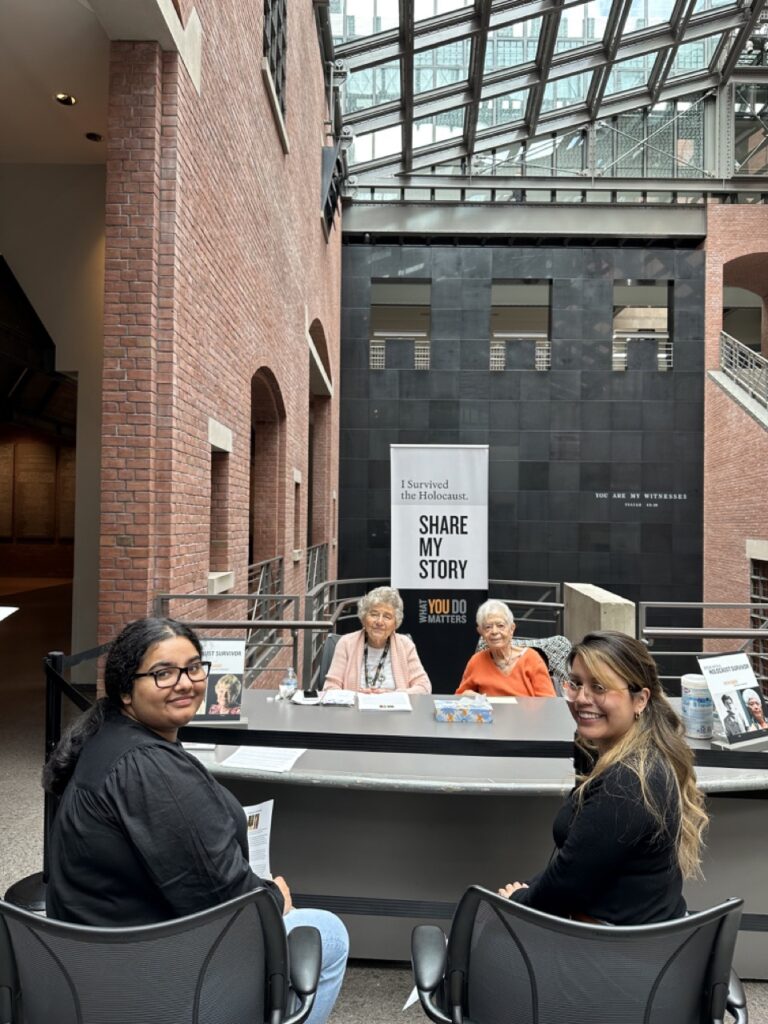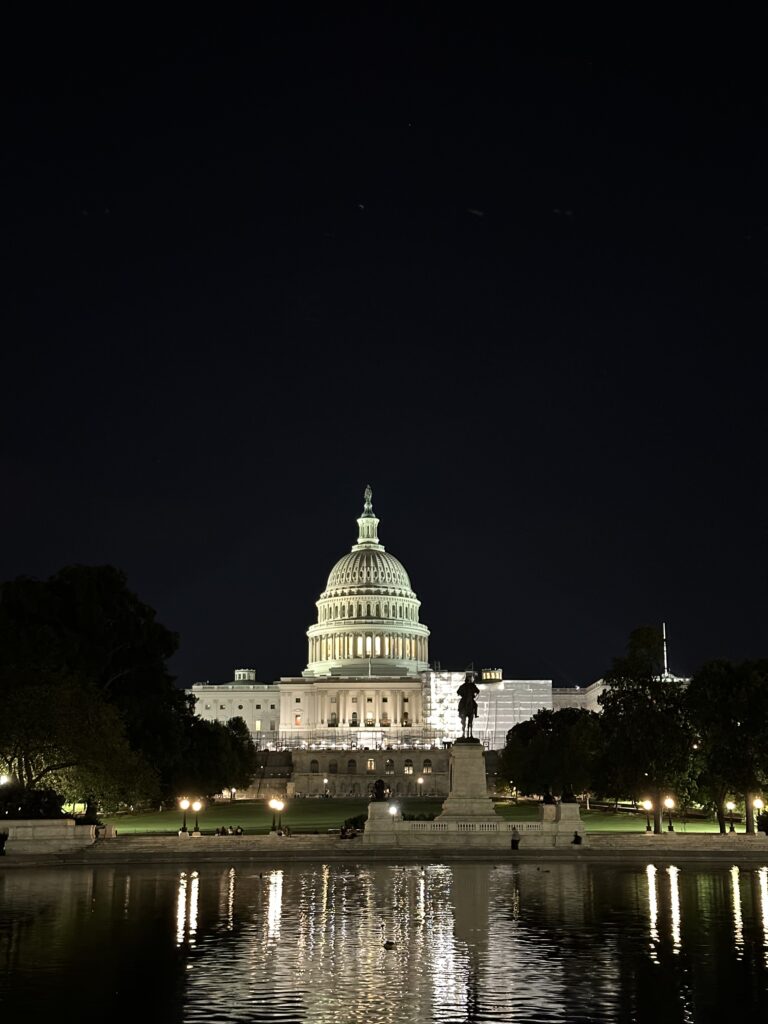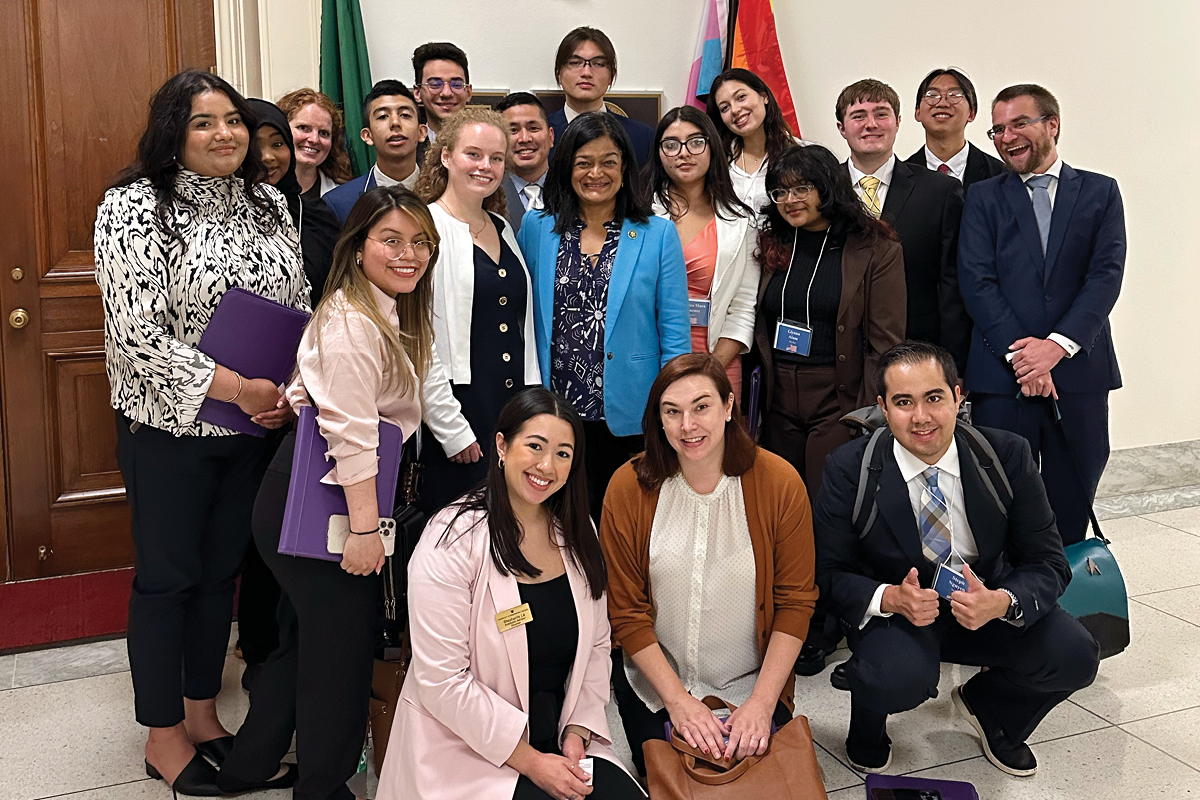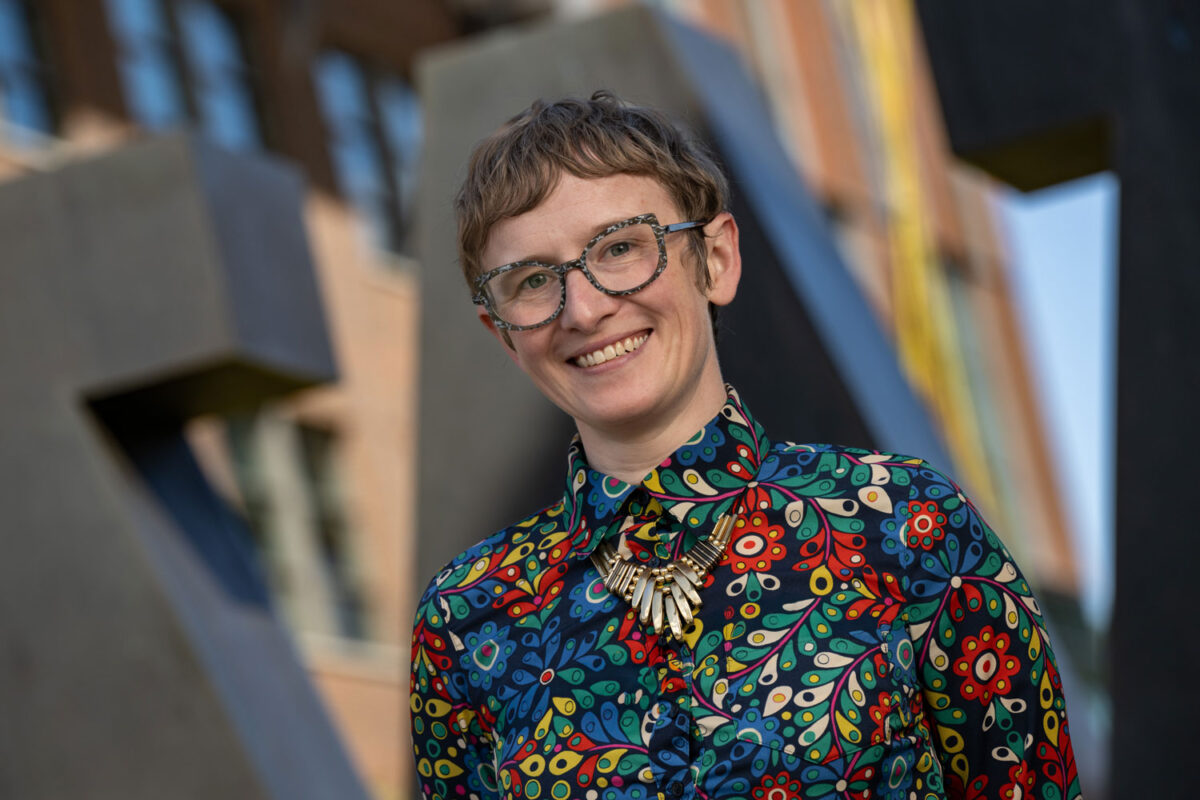Since 1991, the Washington D.C. Human Rights Seminar has provided University of Washington Bothell students with the opportunity to be a part of conversations around national and global policies.
“We emphasize to the officials in D.C. that they will be meeting with researchers, not students,” said Dr. Camille Walsh, associate professor in the School of Interdisciplinary Arts & Sciences, who led this year’s seminar. “Over the years, we’ve developed a strong reputation for being well-prepared and doing serious work.”
The researchers begin preparing in the summer, reading books on history, philosophy, law, international relations, public policy and human rights.
In September, they then travel to Washington for an intense week of sometimes 14-hour days that include briefings, appointments with lawmakers and meetings with staff in the U.S. Department of State, foreign embassies, human rights organizations and policy institutes.
“Students leave the program with leadership and collaborative skills, recognize the impact of diverse perspectives and equitable solutions, think critically about current issues surrounding international policies and galvanize to advocate change in their own communities,” said Stephanie Lê, adviser for the Law, Economics & Public Policy major.
An ongoing battle
The D.C. seminar took a pause from its regular schedule during the coronavirus pandemic and returned to an in-person experience in 2022. “This was the first year we were able to return to our normal lodging facility, which allowed us to go full force with our programming,” Walsh said.

In 2023, the student researchers met with Rep. Rick Larsen as well as staffers from the offices of Rep. Suzan DelBene, Rep. Pramila Jayapal, Sen. Patty Murray and Rep. Adam Smith. They also met with the ambassadors of the Republic of Korea, Argentina, Greece and Japan.
“Having the opportunity to meet with so many different government officials to talk about current issues affecting the United States as well as other countries is something I will never forget,” said Rico Espinosa, a 2023 alumnus with an undergraduate degree in Community Psychology who is now in UW Bothell’s Master of Arts in Policy Studies program.
Espinosa applied to the graduate program to get a greater insight into the formation and reformation of policy. “It is different from reading about it when you see firsthand how policies are deliberated,” he said, “and this was particularly valuable for me as I want to be a policy analyst for the Department of Veterans Affairs.”
A veteran himself, Espinosa wants to work with the VA to improve the quality of life for his peers. “According to the Department of Veterans Affairs in September 2022, the veteran suicide rate in Washington state (32.6 per 100,000 people) was marginally greater than the national veteran suicide rate (31.7) — and substantially greater than the national general population suicide rate (17.3),” Espinosa said. “I think that’s because of limited access to care compounded by the social stigma surrounding mental health.”
Possible career in the capital
While in D.C., Espinosa was able to express his concerns to Rep. James Moylan, the representative for Guam, Espinosa’s birthplace. “On one of the days, we had a few hours of free time, and I decided to see if I could meet with Rep. Moylan,” he said. “I did a quick Google search, found his office number, called and introduced myself.”
From the conversation, Espinosa was able to meet with Moylan’s operations manager who took him to an underground office where the legislative aides work. Espinosa spent some time talking about his background as a veteran and his various policy interests before being taken to the Committee of Natural Resources to meet with Moylan himself.
“I couldn’t believe I was able to go inside,” he said. “I was able to take photos right where the flags are at the head of the committee tables!”
Even more exciting, though, was the conversation he had with the congressman. “I communicated my passions including why I was in D.C. and what I wanted to achieve professionally,” he said. “At the end of the conversation, Moylan asked me if I would like to be his legislative aide for Veterans Affairs,” he said.
While extremely humbled by the offer, Espinosa felt he needed to decline — at least for now. “It is something I will definitely consider down the line, but I feel I need to finish my master’s degree first,” he said. “But to be asked was such an honor.”
I communicated my passions including why I was in D.C. and what I wanted to achieve professionally. At the end of the conversation, (Rep.) Moylan asked me if I would like to be his legislative aide for Veterans Affairs.
Rico Espinosa, graduate student in Policy Studies
Empowered by policy interactions
Espinosa wasn’t the only student to directly have a meaningful discussion with a congressperson. Peter Khawand, a sophomore majoring in Law, Economics & Public Policy, met with Rep. Rick Larsen about the impact of drone strikes on civilians in the Middle East.

Prior to arriving at the capital, the D.C. seminar students decided on a specific international human rights violation to study and later write a 25-page paper pertaining to the topic. Khawand chose to focus on drone strikes.
“My family is from the Middle East, and I have spent a lot of time there,” he said. “I have spoken to many refugees and people who have been impacted by these strikes, and they violate a number of human rights.”
He explained that drone strikes cause innocent civilian deaths and the destruction of infrastructure which can create a lack of access to clean water, food and other important resources such as medical care, employment and education.
“In the past, Rep. Larsen was an ardent supporter of President Obama’s very liberal policy on airstrikes,” he said. “After telling him a bit about my research and the ramifications, I asked him if he would still be willing to issue airstrikes. He gave me a politician’s answer by speaking around it and not giving a clear response.”
Although Larsen’s answer was a bit disappointing to Khawand, he said he was still grateful to have spoken with a congressman about his passion. “It’s easy to alienate yourself from the legislators because they have so much power and you feel like you’re just a regular person,” he said. “But from talking to Rep. Larsen, I realized that legislators are just regular people, too, and it empowered me to get involved.”
Fight for what’s right
On a similar note, Walsh said students who go on the trip often come to recognize that social change is possible, and that their voice and knowledge can be part of that — even if they also realize it’s difficult work.
“My hope is that this program helps them draw connections between their own experiences and beliefs in justice and human rights and the idea that they could actually have an influence on critical decisions impacting populations all over the world,” Walsh said.
“They can be an active participant in moving important changes forward.”




